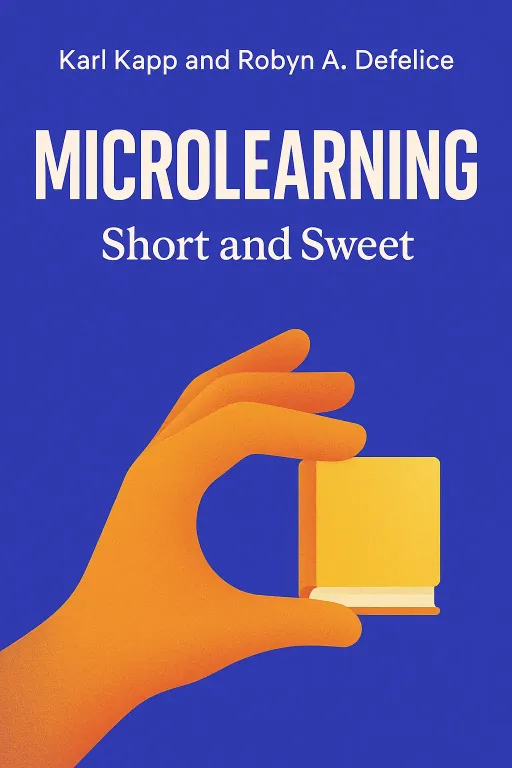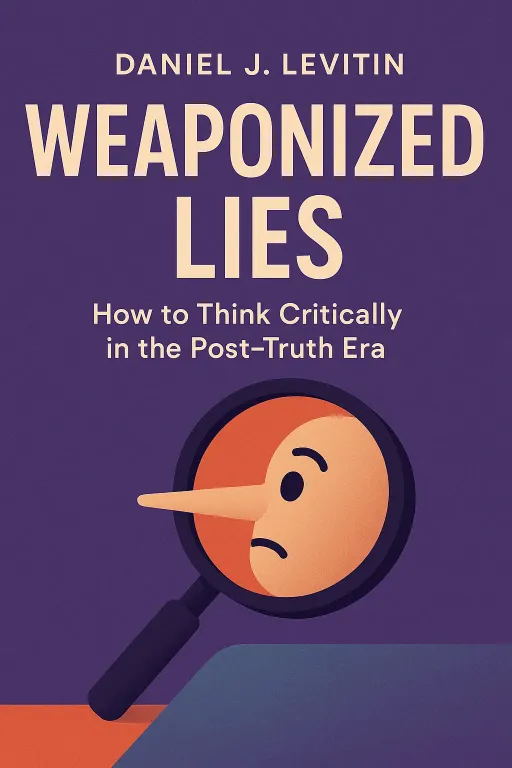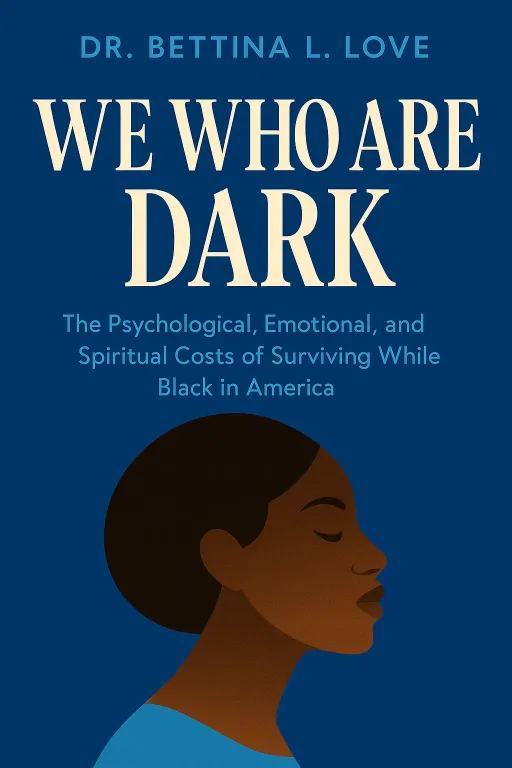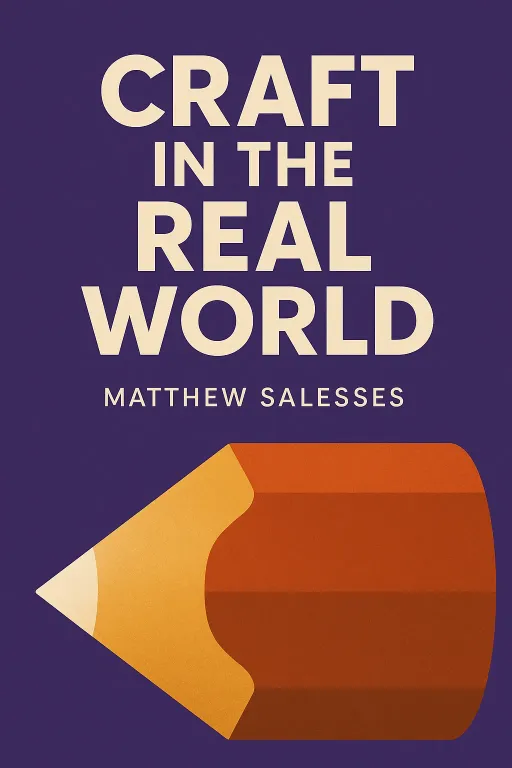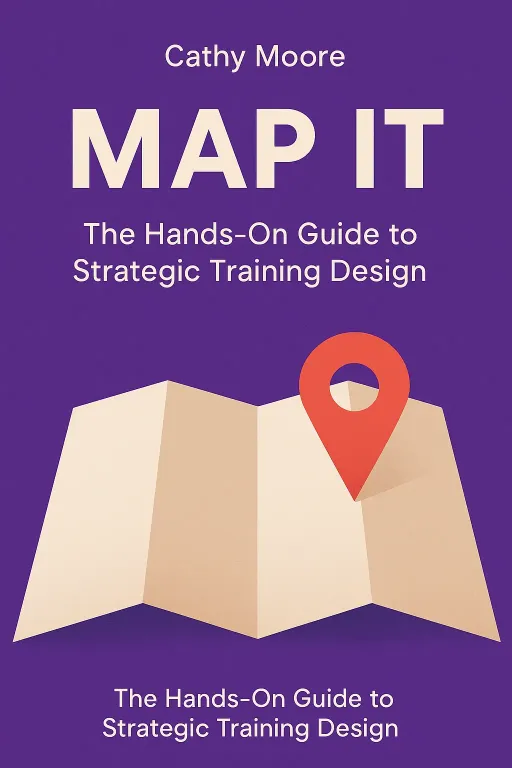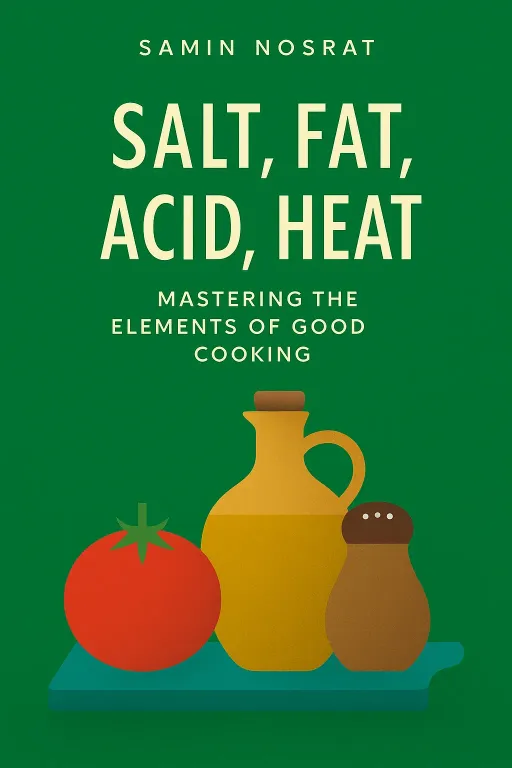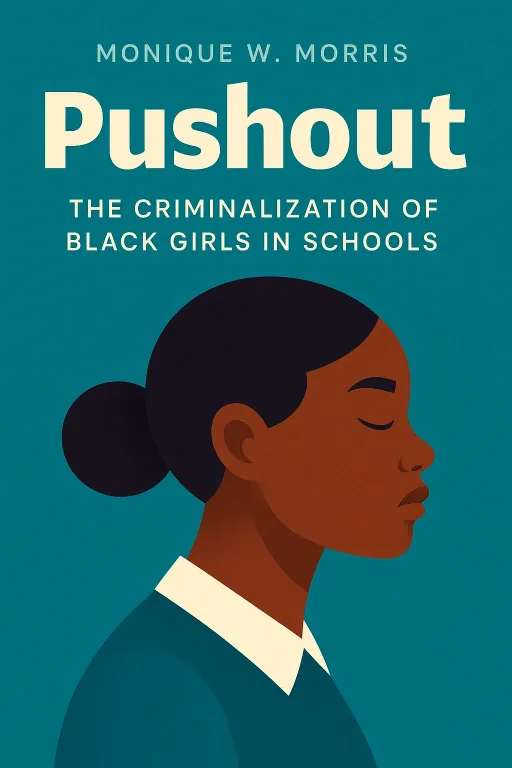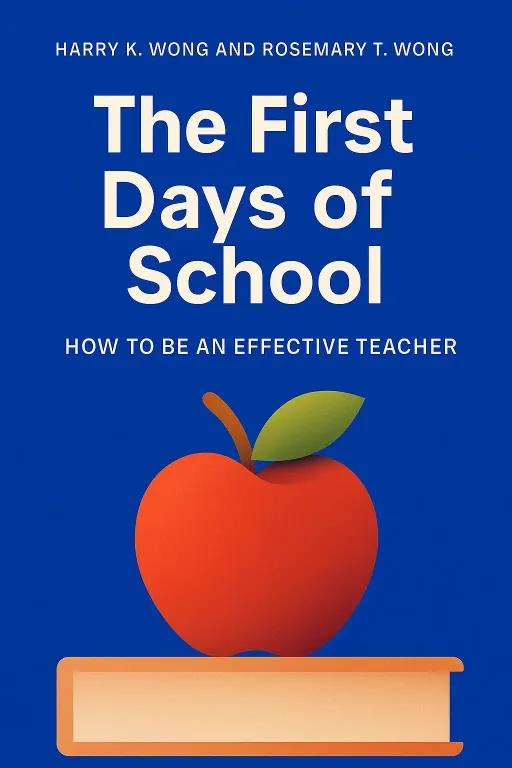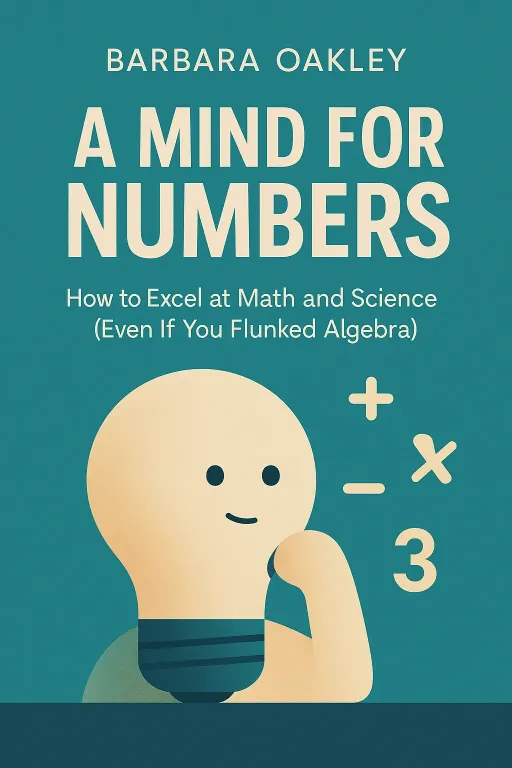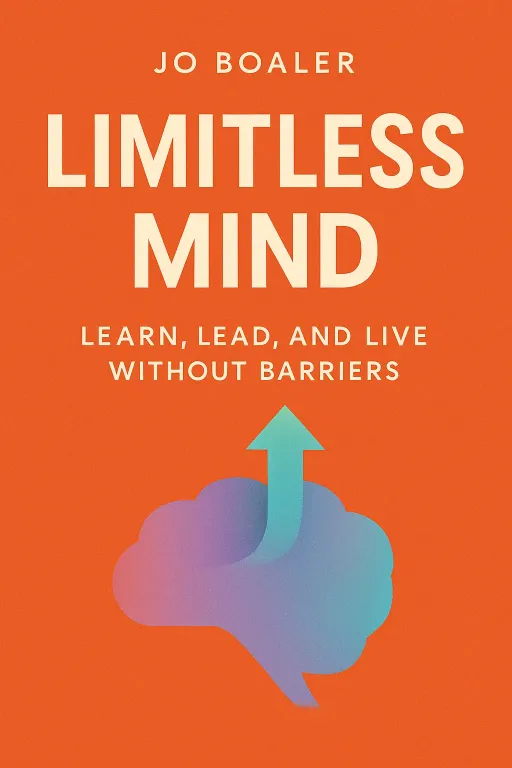
Why Your Brain Loves Mistakes
13 minLearn, Lead, and Live Without Barriers
Golden Hook & Introduction
SECTION
Laura: A single sentence of encouragement from a teacher—just 10 words—was found to significantly raise students' GPAs a full year later. It makes you wonder: what if the biggest barrier to learning isn't ability, but belief? Sophia: Wow, just ten words? That's insane. It sounds like a magic spell. But it also feels deeply true. We've all had that one teacher whose belief, or disbelief, in us completely changed how we saw ourselves. Laura: It’s the entire premise behind the book we’re diving into today: Limitless Mind: Learn, Lead, and Live Without Barriers by Jo Boaler. And she’s the perfect person to write it. She has this incredible dual background—she started as a mathematics teacher in London comprehensive schools, right in the trenches, and is now the Nomellini Olivier Professor of Education at Stanford. Sophia: That’s a powerful combination. She’s seen the theory and the reality. It’s not just ivory tower thinking; it’s grounded in what actually happens in a classroom. That makes me want to lean in a lot closer. Laura: Exactly. And she starts with a story that I think will resonate with so many people who feel like they just weren't born with the "right" brain for something. Sophia: Oh, you mean the 'math person' versus 'not a math person' divide? I feel like that decision gets made for most of us around age twelve and sticks for life. Laura: Precisely. Boaler talks about a woman named Sara, an occupational therapist who was once a math major in college. She loved it, she was good at it, but then the work got harder. Sophia: The inevitable wall. Laura: The inevitable wall. And instead of seeing it as a normal part of learning, she saw it as proof. Proof that she didn't belong. She started feeling like an imposter, that she didn't have the "math brain" everyone else did. So she dropped out of the major. Sophia: Oh, that’s heartbreaking. Because she carried that belief with her for years, right? That a part of her potential was just locked off. Laura: For the rest of her life. And Boaler argues that this story, in millions of different forms, is one of the greatest tragedies in education. It’s a prison of the mind built on a complete misunderstanding of how our brains actually work. Sophia: Okay, but let's be real for a second. Isn't there some truth to it? I mean, talent is real. Some people pick up a guitar and just… play. Others, like me, sound like a cat being put through a woodchipper for months. Aren't some people just naturally wired to be better at certain things? Laura: That is the million-dollar question, and the one that modern neuroscience is answering with a resounding "not really." The idea of a fixed, wired brain is the myth. The reality is something called neuroplasticity. Sophia: I’ve heard that word, but it always sounds a bit like a vague, self-help buzzword. What does it actually mean in practice? Laura: It means your brain is constantly, physically changing in response to what you do and think. It's not a static blueprint; it's living clay. And the most famous example of this is the study of London Black Cab drivers. Sophia: The ones who have to memorize that insane map of London? Laura: The very same. To get their license, they have to pass a test called "The Knowledge," which involves memorizing 25,000 streets and about 20,000 landmarks. It takes years. It’s a monumental feat of memory. Sophia: I get anxiety just thinking about it. My GPS can barely handle my neighborhood. Laura: Well, scientists were fascinated. They took brain scans of these drivers and compared them to a control group. And what they found was stunning. The hippocampus—a part of the brain crucial for spatial memory—was significantly larger in the cab drivers. Sophia: Wait, larger? Like, physically bigger? Laura: Physically, measurably bigger. And even more telling, the longer they had been on the job, the bigger that part of their brain was. And when they retired? It shrank back down. Sophia: Whoa. So the brain is literally like a muscle. The more you use a specific part for a specific task, the bigger and stronger it gets. It's not a fixed piece of hardware at all. Laura: It’s the perfect analogy. You are not born with a "math brain" or a "language brain." You grow one. Sara, the student who dropped out, didn't lack the right brain; she just stopped doing the workout the moment it got hard, because no one ever told her that the struggle itself was the workout. Sophia: That re-frames everything. The difficulty isn't a sign you should stop; it's the sign that the process is working. Laura: That is the first, and most important, key to a limitless mind.
The Power of Productive Struggle
SECTION
Laura: And that idea—that struggle is the sign of growth—leads directly to the second, even more counter-intuitive key. If the brain is a muscle that grows through exercise, then what, exactly, is the mental equivalent of lifting a heavy weight? Sophia: Let me guess. It's not acing a test. Laura: It’s making a mistake. Sophia: You mean, making mistakes is… good? My entire school experience, with all its red ink and grades, taught me the absolute opposite. A mistake was a failure. Full stop. Laura: It's a message we all absorbed, and it's profoundly wrong. A neuroscientist named Jason Moser did this incredible study where he monitored people's brains with an EEG while they worked on problems. He wanted to see what happened in the brain at the exact moment of success versus the moment of error. Sophia: And what did he find? Laura: When the participants got an answer right, there was a small, predictable blip of brain activity. But when they made a mistake? Their brains lit up like a Christmas tree. Two specific electrical signals would fire. The first was the brain's "oh, I made an error" signal. But the second, more important one, was a sign of attention and conscious processing firing. The brain was paying more attention, grappling with the conflict, and growing new connections. Sophia: So a mistake is literally more productive for your brain than getting the right answer? Laura: Infinitely more productive. A mistake isn't a failure; it's a spark. It's the moment your brain wakes up and says, "Okay, something here doesn't fit my current model. Time to build a new pathway." Getting something right just reinforces a pathway you already have. A mistake is the signal to build a new one. Sophia: That’s a massive shift in perspective. It makes me think of how we teach kids. We drill them on math facts, hoping for speed and accuracy, when maybe we should be giving them problems they’re guaranteed to get wrong at first. Laura: This is where Boaler’s research becomes a powerful critique of our education system. She tells the story of a thirteen-year-old clarinet player named Clarissa. By all accounts, she had no special "gift" for music. Average rhythm, not a great ear. Sophia: Sounds like me with the guitar. Laura: But a video of her practicing went viral in music psychology circles because she managed to accelerate her learning by ten times the normal rate. Sophia: Ten times? How? Laura: Daniel Coyle, who studied her, described her practice as a "highly targeted, error-focused process." She wasn't just playing scales. She was playing difficult pieces, making mistake after mistake, but she would stop, isolate the error, correct it, and try again. She was hunting for her mistakes. She was living in that zone of struggle where her brain was firing on all cylinders. Sophia: She was intentionally seeking out the brain-growth moments. That's fascinating. It feels like our entire education system is built on the opposite principle: avoiding mistakes and rewarding speed. Think about timed tests. Laura: Timed tests are Boaler’s arch-nemesis. They are the perfect tool for creating math anxiety. The pressure of the clock floods your brain with stress hormones, which actively shuts down your working memory. It’s the part of your brain you need to solve problems. So we’re testing students’ ability to perform under stress, not their mathematical understanding. Sophia: And we’re sending the message that being good at math means being fast. Laura: Which is a complete myth. Laurent Schwartz, a winner of the Fields Medal—the highest honor in mathematics—admitted he was a very slow thinker in school because he needed to understand things fully. Speed has nothing to do with deep mathematical ability. Flexibility does. Laura: And the difference this makes in the classroom is staggering. There was a huge international study called TIMSS that compared teaching methods across countries. They found that in Japan, a high-achieving country, students spent 44 percent of their class time in a state Boaler calls "inventing, thinking, and struggling with underlying concepts." Sophia: Forty-four percent. That's almost half the class time spent in productive struggle. What was the number for the US? Laura: Less than one percent. Sophia: Less than one… percent? That’s not just a difference; that’s a completely different philosophy of what learning is. We’re optimizing for quick, correct answers, and they’re optimizing for deep, struggle-driven understanding. Laura: Exactly. We’re teaching kids to follow recipes. They’re teaching kids how to cook. Sophia: This is all so powerful, but I have to ask a question that I know some critics bring up. Boaler's 'limitless' idea is incredibly optimistic. But what about the real-world cases? How does this 'struggle is great' idea apply to a student with a genuine, diagnosed learning disability, for example? Is it fair to tell them to just embrace the struggle when their struggle might be neurologically different? Laura: That's a fair and important critique to raise. Boaler addresses this by arguing that even in those cases, the brain's capacity for change is vastly underestimated. She tells the story of Nicholas Letchford. In his first year of school in Australia, he was labeled 'learning disabled' with a 'very low IQ'. He struggled with focus, reading, everything. Sophia: That's a heavy label for a little kid. Laura: A life sentence, for many. But his mother refused to accept it. She worked with him relentlessly, not teaching around his weaknesses, but targeting them, helping him build those connections. It was a long, slow, difficult process. Sophia: And what happened? Laura: In 2018, Nicholas Letchford graduated from Oxford University with a doctoral degree in applied mathematics. Sophia: You're kidding me. From 'learning disabled' to a doctorate in math at Oxford? Laura: It’s an extreme example, but it illustrates her point: the brain's potential for rewiring is immense, but it requires the right environment and the belief that change is possible. She also points to studies where students with diagnosed math disabilities received one-on-one tutoring for just eight weeks. After the tutoring, their brain scans were indistinguishable from the students who never had a disability. The brain differences were gone. Sophia: So the diagnosis wasn't a fixed state, but a starting point that could be changed with the right intervention. Laura: Exactly. The potential is there. The question is whether we create environments that unlock it or shut it down.
Synthesis & Takeaways
SECTION
Sophia: Okay, so putting this all together, the message isn't just a simple 'believe in yourself' mantra. It's that the physical act of learning—the struggle, the mistakes, the flexible thinking—is what literally builds the brain you need to succeed. Laura: That's the perfect synthesis. It’s a two-part key that unlocks the whole system. You need the growth mindset, the belief that you can change, to even be willing to step into the arena. But then you need the right kind of practice—the deep, messy, multidimensional struggle—to actually build the new neural pathways. One without the other is useless. Sophia: It’s like wanting to get strong. Believing you can build muscle is step one. But if you don't go to the gym and actually lift the heavy weights until it hurts a little, nothing will ever change. Laura: And the mistakes are the 'muscle failure' moment in the gym. It's not a sign of weakness; it's the signal that growth is happening. It completely reframes failure. It's not an endpoint; it's data. It's the brain's raw material for getting smarter. Sophia: That feels like the most important takeaway for any parent, teacher, or manager. The way we talk about difficulty is everything. Laura: Absolutely. So the one thing to take away from this is a simple, practical action. The next time you or your child or an employee is struggling with something, resist every instinct to say, 'Oh, this is too hard,' or 'Maybe this just isn't for you.' Sophia: What should we say instead? Laura: Try saying, with genuine excitement, 'This is fantastic. Your brain is growing right now.' That simple reframe—from seeing struggle as a threat to seeing it as an opportunity—can change everything. Sophia: I love that. It’s not just positive thinking; it’s scientifically accurate positive thinking. It makes me want to go find something really difficult to learn right now, just to feel my brain light up. Laura: This is Aibrary, signing off.
